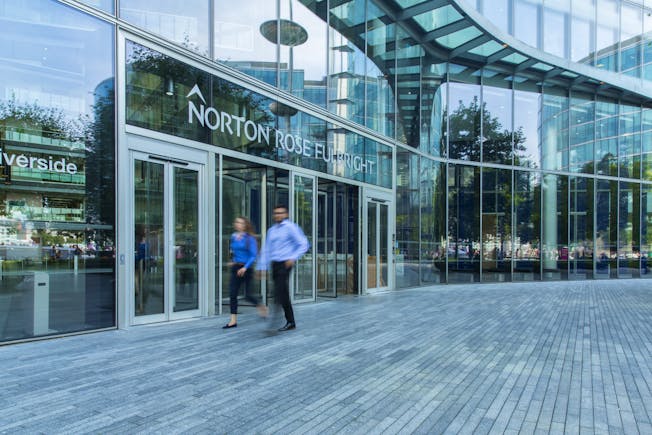
Since the pandemic, digitisation and remote working have quickly moved to the forefront of the legal industry’s mind. Businesses have successfully adapted to remote working, but the pandemic has left additional challenges, such as how do we retain employees who feel burnt out in an increasingly competitive industry. How do we keep integrating technology to make the business efficient and deliver high standard clients services?
These were two of the main questions that arose at a roundtable co-hosted by The Lawyer and Nuance Communications’ Vladimir Teodosiev and Robin Kilner from Nuance Communications.
Digitisation and remote working
There was a mutual understanding at the roundtable that the use of technology and paperless working has been integrated into firms much more. Firms had been integrating new technology prior to the pandemic, but the pandemic highlighted the necessity of finding efficient work processes and developing these to be responsive to client needs in new ways. This includes striking the right balance between allowing the flexibility of hybrid working, whilst still tapping into the value of in-person interactions. Clients can see the value of in-person interactions but are also increasingly aware of the reduced costs that come from having stronger remote working bases.
Embracing technology now must move towards how well it can be used and strategised for the future – not just how it fills a gap in a crisis, says Robin Kilner, principal healthcare consultant at Nuance. “We have technology in place but when I’ve investigated there has been a vast disparity in terms of how simple technology is.” This means firms need to look at how they can integrate technology seamlessly and successfully both remotely and in the office, but also looking at mindset changes within lawyers. The key is to develop a thinking among lawyers that moves them from seeing themselves just as technical lawyers, to service lawyers; technology growth has become a big part of that.
The Great Resignation
Another issue raised at the roundtable was the Great Resignation that is hitting employers. Increasing resignations are happening for a number of reasons, including a change in priorities after the pandemic, burnout, competitive and rising salaries in the City and ‘lifestyle’ wars between companies. New weight is being placed on the benefits that employers can give their employees as well as improving staff wellbeing and prevent burnout. With over-inflated salaries in the City for junior lawyers, retaining talent and supporting career development are becoming new challenges. The question of how employers can remunerate people who are more senior amid rising salary inflation arose. The salary war that has arisen in City firms has led to challenges among the legal industry; the impact on the market cannot yet be fully understood.
The responsibility over wellbeing
The responsibility of employees’ wellbeing can’t be underestimated by employers thinking about the retention of staff. Kilner discussed how important it is to continue to engage with staff, even when they are not working in the office. “We need to be proactively conscious about how we engage with people,” he says. “Even though we communicate via teams, it can be harder to check in on how people actually are, such as their tone of voice, body language. Organisations have a responsibility to proactively engage with their staff for example through surveys to ask whether we are we getting it right from a structure point of view, from a hybrid working point of view, from our use of technology.” He considered whether people feel they have to be constantly online and unable to get away from their desk. It was agreed that there is no one hard-and-fast-rule and that this is still a period of people finding their feet, but that taking care of employee wellbeing is vital for retention.
However, there was also an understanding that work is becoming more transactional. People are more comfortable to move from workplace to workplace, and businesses need to address the impact of this kind of movement. Possible solutions to this are keeping costs down by outsourcing work instead of always hiring salaried workers and ensuring a degree of hybrid working to keep flexibility possible and attract a wider pool of potential employees.
A final thought was that presenteeism appears to have gone out the window, with the belief it is far better to be judged on what we do and achieve rather than on time spent at an office desk. Participants agreed that a silver lining to come from the pandemic was that in-person meetings were now more efficient and more valuable.
Sponsor commentary from Nuance
The process of digital transformation, greatly accelerated by the pandemic, highlighted the need for UK law firms to implement new technology-driven strategies and practices in response to client needs and the way legal services are delivered. As a result more efficient working process were introduced at an unprecedented scale. However, new additional challenges such as employee wellbeing, retention and fair pay are now very high on many boardroom agendas.



















